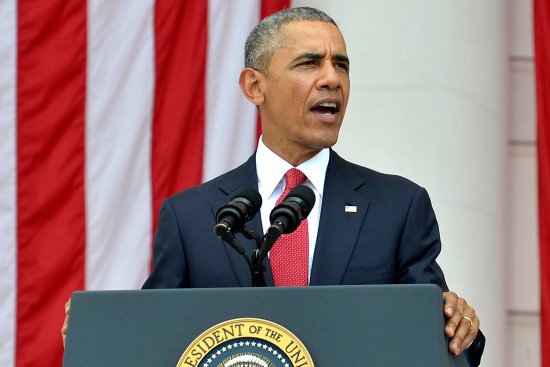
One of the areas hardest hit by the Great Recession
In the early days of his presidency, Barack Obama visited one of the areas hardest hit by the Great Recession, Elkhart, Ind. There, he promised the people of the northern Indiana town that he’d do “everything I could” to help the area recover. “I intend to keep my promise,” he said during a visit in early 2009.
Elkhart at the time was a bleak representation of the troubled American economy. In January 2009, the unemployment rate in Elkhart County, which includes the cities of Elkhart and Goshen, was 19%; in March of that year it would hit 20%.
Between 2008 and 2009, Obama visited the area four times, delivering a message that he would usher in change to an area where jobs, particularly in the key industry of recreational-vehicle manufacturing, seemed to have gone the way of the dodo. Between August 2008 and 2009, more than a dozen RV factories shuttered. In telling the community he had its back, President Obama set aside money from his nearly $800 billion stimulus package to address the area’s woes. He visited the Elkhart area in August 2009 to announce a local RV manufacturer was one of several Indiana businesses that would receive part of a $400 million federal grant to bolster the economy. The White House said Tuesday that the Recovery Act, which President Obama signed in February 2009, provided $169 million in stimulus funding in Elkhart. Throughout both of the President’s terms, he returned to the Hoosier state — in 2010 and in 2014 — both times noting the area’s economic progress.
In the seven years since the President’s first visit to Elkhart, times have certainly changed. The Bureau of Labor Statistics reports the unemployment rate was at 4.3% in March 2016. Charts promoted by the White House show foreclosure rates dropping and manufacturing jobs increasing during the President’s two terms in office. “The story of Elkhart’s recovery is the story of America’s recovery,” the President said in an open letter. “This progress is thanks to the determination of Americans like you. And it’s the result of choices we made as a nation.”
During a trip on Wednesday, the President plans to address the Elkhart community from the same place he spoke in 2009 touting the progress the community has made and the work that remains. The community of Elkhart, however, does not credit the White House or President Obama for the recovery it has experienced.
“He gets very, very little credit, and I think that’s too bad because we got quite a bit of help,” Dick Moore, who served as mayor of Elkhart from 2007 until November 2015, told the New York Times in April. “I don’t know what we would have done without it.” A similar report by the Guardian found that the President was less-than-well-liked in the town of 51,000. “He said he was going to be there for us. He didn’t do anything,” said Tom Bumpas, who is back to work servicing motorhomes after bouts of unemployment and part-time work.
Even Governor Mike Pence, who is running a campaign touting himself as the key to Indiana’s success, says the President didn’t do much. “I’m more than happy to have the President come and celebrate the economic success of the state of Indiana, but I’m not real sure what Washington, D.C., has done to contribute to it,” Pence told radio station 95.3 MNC in April.
During Tuesday’s press briefing, White House press secretary Josh Earnest said the President is likely not getting the credit he feels he deserves for the recovery because of “Republican obstruction” to recovery efforts, though he said the American people and the private sector are largely responsible for it. “It’s the American people who deserve credit for our recovery, but that recovery would not have been possible without the federal government making smart decisions to invest in the middle class, to invest in those aspects of our economy that are critical to our long-term success,” he said.
Earnest also said the President will use Wednesday’s visit to discuss the “very real choice” Americans are setting out to make this upcoming November, when they’ll hit the polls to choose his successor. He attempted to rebuff any notion that Republican policies would be more beneficial to citizens like those in Elkhart than the President’s were, while contending that the visit is not meant to be a campaign stop.
“The President is not content with the progress that we’ve made thus far,” Earnest said Tuesday. “He understands that his successor will have some important decisions to make about whether or not we are going to build on this progress or whether we’re going to tear it down. There is a pretty clear choice to be made if you take a look at the policies that are being advocated by the two parties.”
Yet, the favorite among Elkhart residents, reports show, is anti-establishment businessman Donald Trump, who shuns globalization and whose views, residents believe, align more with their conservative values. In May, Trump picked up 57 delegates in the Indiana primary with 53% of the Republican primary vote. Though the President narrowly won the Hoosier State in 2008, he lost to Mitt Romney by nearly 11 percentage points in 2012.
That divide will likely make for an interesting conversation during a planned town-hall meeting in the city, hosted by PBS Newshour, airing at 8 p.m. on Wednesday.